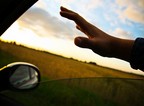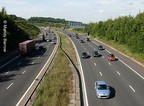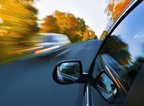Read it before you begin the great adventure!
Route
Have a detailed “travel by car” plan trip to have as a reference point, although it is almost certain that you will not follow it. Calculate how many miles you want to make a day (usually around 500) to organize your trip. Keep in mind that eventually you will cover 10% to 40% more mileage than you calculate, and organize things accordingly to avoid
going outside the schedule. During the summer months you may encounter traffic on roads that connect major population centers with resort areas. Avoid passing these streets during weekends. Avoid making long distances over mountainous areas. The paths can be very beautiful, but the morphology of the road is such that you may delay too much and get you out of your schedule.
Maps
In order not to get lost in when traveling by car, get some maps (or GPS) before your departure, but also during the journey where you will probably find more detailed ones. In every city you arrive, you can do this. Enter a hotel which externally looks very expensive (and usually is). Ask for a price for X people staying Y evenings. Thank the gentleman who served you very politely, and then take all the free advertising from the corresponding bench, including city maps and other useful information. Always smiling and politely greeting move on with your map! Do not hesitate to ask for further information if you want. They will kindly inform you.
Preparing the vehicle
Check your tire pressures | Test your brakes |Change oil if needed | Check your radiator | Check your battery.
Vehicle equipment
Jack-reserve | Lens Lubricant |Rope |Tube-funnel for decanting petrol
Driving behavior
The most important thing travelling by car a long distance is to know the vehicle you drive. This means at least 6 months familiarity with the vehicle in terms of driveability, consumption in various situations and possible problems that may be present after traveling several kilometers. Also pay great attention to the system resources: Fuel and battery. You definitely do not want to face such problems in a long journey. The tires are a very important issue, so frequent monitoring of tire pressure is required. It is much more important than most people think. Bring your own instrument for measuring pressure as other countries may use different measurement units. You can get a very inexpensive one. Your vehicle during the trip will be loaded perhaps more than you have become accustomed to, with implicit effects: Slower acceleration, longer braking distances, and greater consumption. Put heavier items as low as you can. Do not forget that for a very large part of the trip you’ll be on the wheel. The items you will need during driving should be placed in a location that is easy to reach. If needed, ask the help of the crew even when driving in a straight and low speed. Travel at a constant speed so as to neither strain yourself nor the vehicle. Do a stop every 200-300 km even if you think you’re not tired. Some of the Gas stations you are likely to encounter are self service. Do not let the passenger or someone else to help you. Put the gasoline by yourself. Follow the practice of filling up each time the fuel gauge is in the middle. You will not lose money. Rather, it can save you from hassle, especially when you do not know the form of the road ahead of you and when you might find the next gas station. When you travel by car, do not ignore speed limits. They are specifically designed for the roads they are on and you may see signs that indicate different speed limits depending on weather conditions. In Europe, modern systems are used to identify the offenders. On European roads there are 1-3 spots per …Previous page kilometer available for you to stop at. When you stop for the night, do not leave your luggage in the car, even if parked in the hotel garage. Be sure to have with you the second key for the car, which should always be kept by a passenger, never by the driver.
Currency
Find information on the amount of currency you can bring. For the European Union you must declare the amount that you have with you at the office, if it exceeds $ 10,000.
Electricity
For electrical appliances you will need to know what current is used in the destination country. Chargers for mobile phones and laptop computers usually work with 100 to 240 volt and 50-60 Hz, so no problems are expected for these devices.
Mobile phones
Ask the company that provides your connection if there is a roaming service in the countries you will visit when you travel by car.
OK that’s all! Get set and have a happy vacation in Greece!




